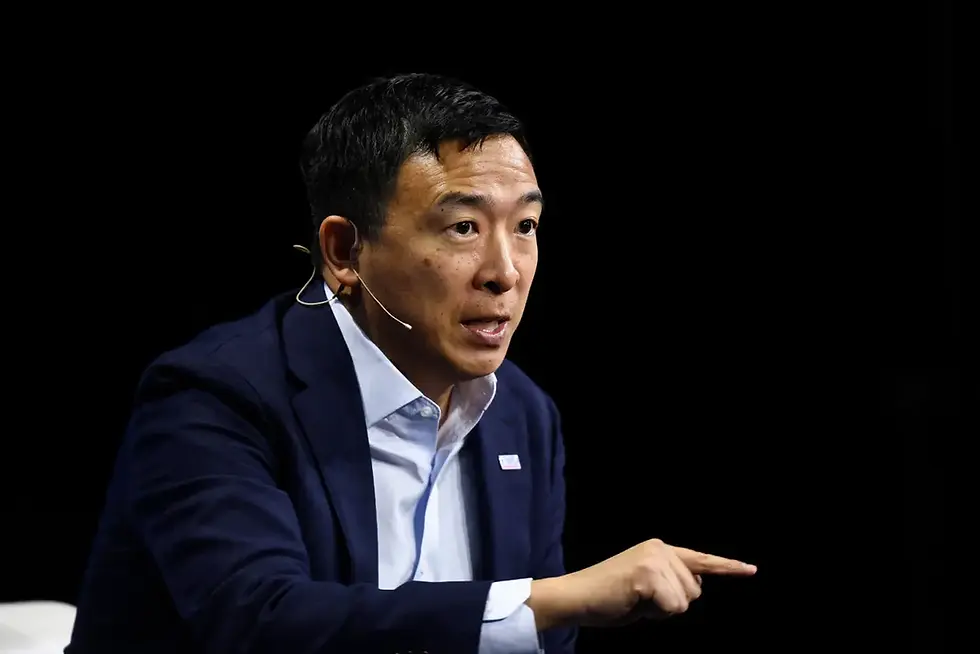World Governments Summit 2025: The Battle Between AI Innovation and Bureaucracy
- Dr. Shahid Masood

- Feb 17, 2025
- 4 min read

The World Governments Summit (WGS) 2025, held in Dubai, showcased a landmark gathering of global leaders, policymakers, and technology visionaries to discuss the intersection of governance, artificial intelligence (AI), and global stability. With keynote addresses from Elon Musk, Lieutenant General Sheikh Saif bin Zayed Al Nahyan, and other influential figures, the event underscored the transformational role of AI in shaping modern governance.
As AI and data-driven governance redefine geopolitical and economic power structures, the world faces a critical moment: Will AI liberate or control societies? Will governments shrink or expand in response to technological advances? How will historical governance models inform the future?
This article provides a deep, neutral, and historically grounded analysis of the summit’s major themes, examining governance models, AI’s risks and benefits, and how nations are positioning themselves in the AI arms race.
Elon Musk’s Critique of Big Government: Efficiency vs. Stability
Elon Musk, appearing via video link, voiced his concerns about the inefficiency of government bureaucracies. He argued that modern governments have become bloated entities that hinder economic growth and individual freedom.
"We must question the role of bureaucracy. If a system is too rigid, it inevitably collapses under its own weight." — Elon Musk, WGS 2025
The Growth of Government Bureaucracy Over Time
Historically, governments have expanded during economic crises and wars but have struggled to scale back. This trend is visible in the growth of government budgets worldwide:
Comparison of Government Spending as a % of GDP (1950–2025)
Country | 1950 | 1980 | 2000 | 2025 (Projected) |
United States | 17% | 30% | 35% | 42% |
United Kingdom | 35% | 41% | 39% | 45% |
France | 27% | 42% | 52% | 58% |
China | 10% | 22% | 27% | 32% |
Musk warned that without downsizing, bureaucracies risk creating self-sustaining power structures that resist change.
Proposed Solution: The Department of Government Efficiency (DOGE)
Musk humorously proposed a new department dedicated to auditing and removing redundant agencies, calling it the Department of Government Efficiency (DOGE).
"The idea that every department created must exist forever is flawed logic. Governments should be like startups—lean and efficient."
Agencies Musk Suggested for Elimination
Agency | Function | Reason for Removal |
USAID | Oversees foreign aid | Encourages dependency, costly |
National Endowment for Democracy | Supports democratic movements | Perceived as interfering in other nations |
Department of Education | Regulates national education | Advocates for state-level control |
His position aligns with libertarian economic principles, which argue that centralized decision-making reduces innovation and efficiency.
The AI Revolution: Utopian Governance or Technocratic Control?
Musk also discussed AI’s increasing role in governance, cautioning against the unregulated use of AI in political decision-making.
"If AI is programmed with flawed priorities, it could make irreversible decisions that no human government would dare make."
AI’s Role in Political and Economic Decisions
Governments are increasingly using AI for policy analysis, economic forecasting, and even military strategy. However, AI’s influence also raises concerns about bias, ethics, and control.
Global AI Regulation Strategies
Country | Regulatory Model | Key Policies | Risk Level |
United States | Market-driven, corporate-led | AI Bill of Rights, AI Safety Institute | High |
European Union | Strict regulatory framework | AI Act, GDPR compliance | Medium |
China | State-controlled AI development | AI ethics laws, real-name verification | Low |
UAE | Balanced innovation & regulation | AI Ministry, National AI Strategy | Medium |
The U.S. and China lead the AI race, but their approaches vastly differ—corporate control in the U.S. versus centralized government oversight in China.
Case Study: OpenAI’s Shift from Nonprofit to Corporate Giant
Musk criticized OpenAI, a company he co-founded, for shifting from a nonprofit organization to a profit-driven company led by Sam Altman.
"Imagine a nonprofit dedicated to saving rainforests turning into a logging company overnight." — Elon Musk
This transformation represents a broader trend: AI development is increasingly controlled by corporations rather than governments, raising concerns about monopolization and ethical concerns.

The UAE’s Strategy: Stability, AI, and Humanitarian Leadership
Lieutenant General Sheikh Saif bin Zayed Al Nahyan, in the presence of Sheikh Mohammed bin Rashid Al Maktoum, presented the UAE’s model of governance, emphasizing a balanced approach between innovation and national stability.
UAE’s Technological and Economic Achievements
$135 billion in foreign investment over seven years.
Top 5 global ranking in AI research and development.
Dubai among the world’s top 3 smart cities.
UAE passport ranked among the world’s strongest.
Operation Gallant Knight 3: A Case Study in Humanitarian Leadership
The UAE has led global humanitarian efforts, with 42% of total global assistance to Gaza coming from the UAE.
Sheikh Saif’s speech highlighted how humanitarian leadership and AI-driven governance are not mutually exclusive—the UAE balances both effectively.
Lessons from History: Governance, Power, and Civilization
One of the most profound aspects of Sheikh Saif’s speech was his historical comparison of governance models.
"The Umayyad and Abbasid caliphates did not seek to destroy previous civilizations; they absorbed knowledge."
Governance Models Over Time
Era | Dominant Power | Key Examples |
Medieval Period | Military Conquests | Mongol Empire, Ottoman Expansion |
Industrial Revolution | Economic Dominance | British Empire, U.S. Industrial Boom |
Digital Age | Data & AI Domination | Google, OpenAI, Amazon |
AI is now the ultimate form of governance power, replacing traditional political and military dominance.
The Dubai Loop: A Glimpse Into the Future of Smart Cities
Musk announced The Boring Company’s latest project: the Dubai Loop, an underground high-speed transit system.
Features of the Dubai Loop
Ultra-fast underground transport across Dubai
Designed to reduce congestion
First large-scale implementation of Musk’s tunnel network vision
This aligns with Dubai’s vision of a smart, AI-powered city.
AI and the Evolution of Global Governance
The World Governments Summit 2025 made one thing clear: governance will never be the same again. With AI taking center stage, governments must decide how much control they will retain and how much they will cede to technology.
As nations navigate these changes, critical questions emerge:
Should AI govern humans, or should humans govern AI?
Is global stability possible in an AI-driven world?
Will governments shrink or expand due to AI?
For expert insights into AI, governance, and global stability, follow Dr. Shahid Masood and the expert team at 1950.ai.




Governments are going to transform completely across the globe till the mid 21st century. And US is leading this change under Trump administration and Musk's vision of smart government under newly formed DOGE department. Rest world to quite reluctant possibly waiting to see outcomes of 1st transformation, as in power play no government wants to take risk.
Very insightful sir I am US right now if you we can connect want to discuss few points with you.